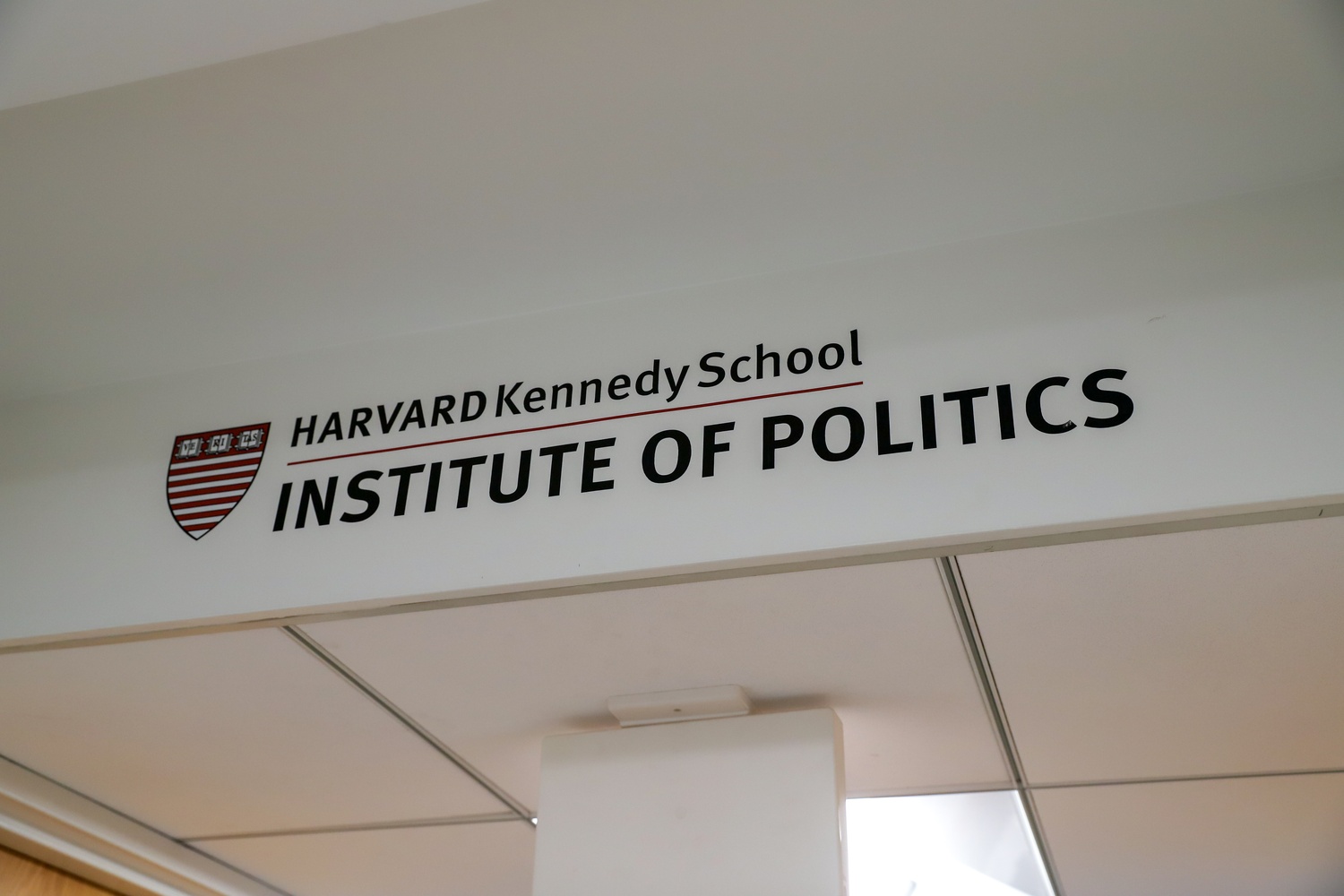
News
When Professors Speak Out, Some Students Stay Quiet. Can Harvard Keep Everyone Talking?

News
Allston Residents, Elected Officials Ask for More Benefits from Harvard’s 10-Year Plan

News
Nobel Laureate Claudia Goldin Warns of Federal Data Misuse at IOP Forum

News
Woman Rescued from Freezing Charles River, Transported to Hospital with Serious Injuries

News
Harvard Researchers Develop New Technology to Map Neural Connections
Panelists at IOP Forum Criticize Trump’s Policies, Ask Harvard for 'Soul-Searching'

A panel of economic and foreign policy experts looked for silver linings in President Donald Trump’s first two weeks of executive orders at a Institute of Politics forum on Wednesday evening — and saw a lot of clouds.
The event — moderated by IOP Spring 2025 Resident Fellow Brittany Shepherd — featured former Harvard Kennedy School Dean Graham T. Allison ’62 and Harvard Economics professor Jason Furman ’92. Other panelists included Washington Post Chief Correspondent Dan Balz, Belfer Center Director Megan L. O’Sullivan, and HKS professor Cornell William Brooks.
Though the panel primarily concerned U.S. international relations, Brooks slammed the first weeks of the Trump administration’s domestic policy as a “racist, xenophobic, democracy-disorienting assault on our institutions.”
In speaking directly about Trump’s anti-DEI executive order, Brooks challenged the idea that diversity is only a matter of “what holidays we celebrate.”
“It is not merely about abolishing Holocaust Remembrance Day, not merely about abolishing Hispanic Heritage Month, or Black History Month, or Women’s History Month,” Brooks said. “This is literally the racial weaponization of the federal workforce.”
Later in the forum, Furman and Allison said there was a disconnect between academic dialogue and political realities.
“It’s not even any particular policy, but how we think and approach them altogether. Some of that is this decline in trust in institutions,” Furman said. “Harvard is an institution, the way economists think is an institution.”
Furman added that discourse in the U.S. government about economics “has departed from what it is we do and teach in our classrooms — and how we get back to that worries me quite a lot.”
Allison addressed a similar misalignment between higher education and the public, referencing a pre-election poll finding that 70 percent of Americans thought the country was going in the “wrong direction.” According to Allison, Harvard students and faculty are in need of some “soul-searching” in the face of this disparity of beliefs.
“We think things are fine. We give our lectures,” Allison said. “We need to have a long, soul-searching for ourselves about what other people in their misguided ways may think that we don’t agree with — or maybe even that we might be wrong.”
For the majority of the event, the panel discussed the impact of Trump’s first weeks on the economy, diplomacy in the Middle East, and the U.S. relationship with China. While the speakers largely agreed that the beginning of the presidential term has been turbulent, they sought to analyze the policy implications behind Trump’s rhetoric.
During the forum, Furman said Trump’s retraction of heavy tariffs against Canada and Mexico — and the act’s limited returns — called the credibility of his threats into question.
“The question is, ‘Did he help his leverage by looking like he was willing to do really, really big things, or did he hurt his leverage by making massive threats and getting really, really tiny things in exchange for them?’” Furman asked.
“I saw one tweet saying that he was going to put tariffs on France if they didn’t agree to eat croissants,” Furman added.
O’Sullivan said there were “grounds for optimism” about diplomacy in the Middle East under the new administration, referencing Israeli Prime Minister Benjamin Netanyahu’s recent visit to the White House.
“I’m not a mind reader here, but I expect that President Trump is very, very focused on the normalization of relationships between Saudi Arabia and Israel,” O’Sullivan said. “This is what he considers, I imagine, to be unfinished business from his first administration.”
Allison underscored the importance of navigating delicate ties between the United States and China, calling it “the most important relationship in the world” and pointing to Trump’s close relationship with Chinese President Xi Jinping.
“All this is run up to negotiation between two people who know each other very well, respect each other, as Trump said over and over in the campaign,” Allison said. “I bet his first trip will be to China.”
—Staff writer Ava H. Rem can be reached at ava.rem@thecrimson.com. Follow her on X @avar3m.
—Staff writer Elise A. Spenner can be reached at elise.spenner@thecrimson.com. Follow her on X at @EliseSpenner.
Want to keep up with breaking news? Subscribe to our email newsletter.
